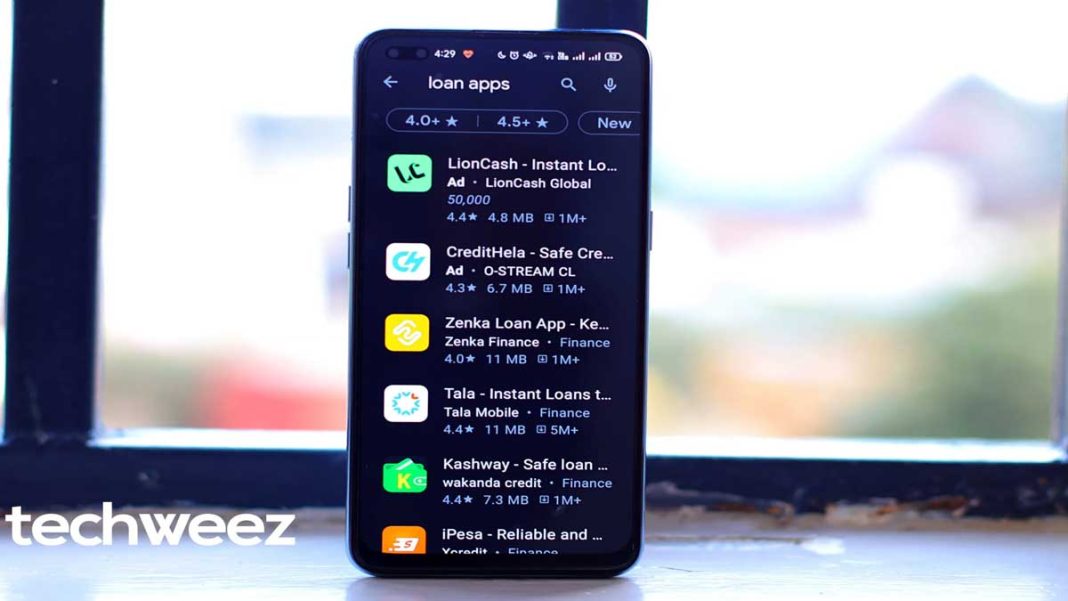CBK amendment Bill of 2021, seeks to terminate mobile phone loan lenders. The government-backed Central Bank of Kenya (Amendment) Bill, 2021, has as its main goal to reduce the high digital loan rates that have trapped many borrowers in debt.
If Parliament passes a proposed law allowing the Central Bank of Kenya (CBK) to regulate their services, management, and exchange of borrowers’ details, digital mobile lenders will have six months to be approved by the CBK.
This bill is a necessary evil. Many Kenyans have become impoverished as a result of this unregulated lending.
These lenders have expensive loans that exploits borrowers who are in dire need. They also lack ethics in collection and they seem to be operating in archaic unregulated policies.
The CBK amendment Bill of 2021 will also attempt to drive out rogue players in response to complaints over corrupt activities such as money smuggling, unlawful mining of consumer private records, and public humiliation to creditors who default on payments.
Kenyans Reaction
Members of the public have thrown their weight behind the CBK amendment Bill of 2021.
The mobile loan apps are a nuisance. They humiliate defaulters, infringe on borrowers’ constitutional rights by hacking into the phone, charge exorbitant interest rates, and vanish with subscribers’ savings. Some crooks charge a processing fee in order to grant you a loan, but after you pay, they block your account. Lending should only be left to saccos & banks. Mobile loan apps should be banned & owners arrested and charged.
Martin Mega, Facebook
Kenyans are poor because of these mobile loan applications.
On average, 70% of Kenyans over the age of 18 have a loan via those applications.
Their demand/recovery process is the country’s leading cause of depression.
CBK amendment Bill of 2021 should regulate or shut them down permanently.
Start with ipesa, those niggas called my late grand mother akanikuchia kwa ndoto ati niwalipe. Tutalipiana mbinguni.
Wasike Dan, Facebook
The banking regulator is expected to set minimum liquidity and solvency criteria for digital credit providers, similar to those in place for banks in Kenya.
Kindly regulate. I borrowed 7k from kashway I was given 5k. I have defaulted with 30 days. They now want 12k. How do you pay 5k with 12k in just one month.
Mary Wanjiku, Facebook
Same Rules
If the CBK Amendment Bill of 2021 becomes law, digital lenders may be subject to the same regulations as commercial banks.
This includes the need to obtain CBK approval for new products and pricing that requires loan charges, as well as a cap on non-performing loans of not more than twice the defaulted amount.
The regulator would have to inspect the management of digital loan suppliers, implying that a local office will be needed.
Every individual who was in the business of providing credit facilities or loan services via a digital medium prior to the come into force of this Act and is not governed under any other legislation shall register with The Bank (CBK) within six months of the effective date of this Act.
CBK amendment Bill of 2021
Gladys Wanga, member of the Finance and National Planning Committee, proposed the CBK Amendment Bill of 2021 in Parliament.
The CBK has previously expressed concern that credit-only mobile lending agencies might be used to launder illegal funds.
Criminals and the corrupt individuals use money laundering to clean their wealth, which entails moving and disguising unlawfully earned funds to make them seem real.
Source Of Funds
To combat money laundering and terrorist funding, the bill requires companies to report to the CBK the source of funds they are lending.
As regulators scramble to keep up with the boom in lending by financial technology (fintech) companies, including US start-ups, those who break the rules face a fine of Sh5 million or a three-year prison sentence, or both.
According to analysts, the majority of fintechs would fail to meet the strict licensing requirements.
In response to the increased demand for short-term loans, tens of unregulated microlenders have invested in Kenya’s credit market.
Their widespread use has saddled borrowers with high interest rates that can reach 520 percent when annualized, resulting in the defaults and an ever-increasing number of defaulters.
Many Kenyans who previously had little to no access to credit now find that they can get loans in minutes via their cell phones.
The CBK Amendment Bill of 2021 also comes amid concerns that automated lenders do not provide borrowers with complete details on pricing, default penalties, and loan recovery.
Mishandling Private Info
Digital lenders have been accused of abusing private information from borrowers by bombarding relatives and friends with messages about the default and requesting repayment from third parties.
The drive to regulate digital lenders comes more than a year after Kenya removed the legal limit on commercial lending rates.
The CBK prohibited unregulated automated mobile lenders from forwarding the names of loan defaulters to credit reference bureaus in April (CRBs).

